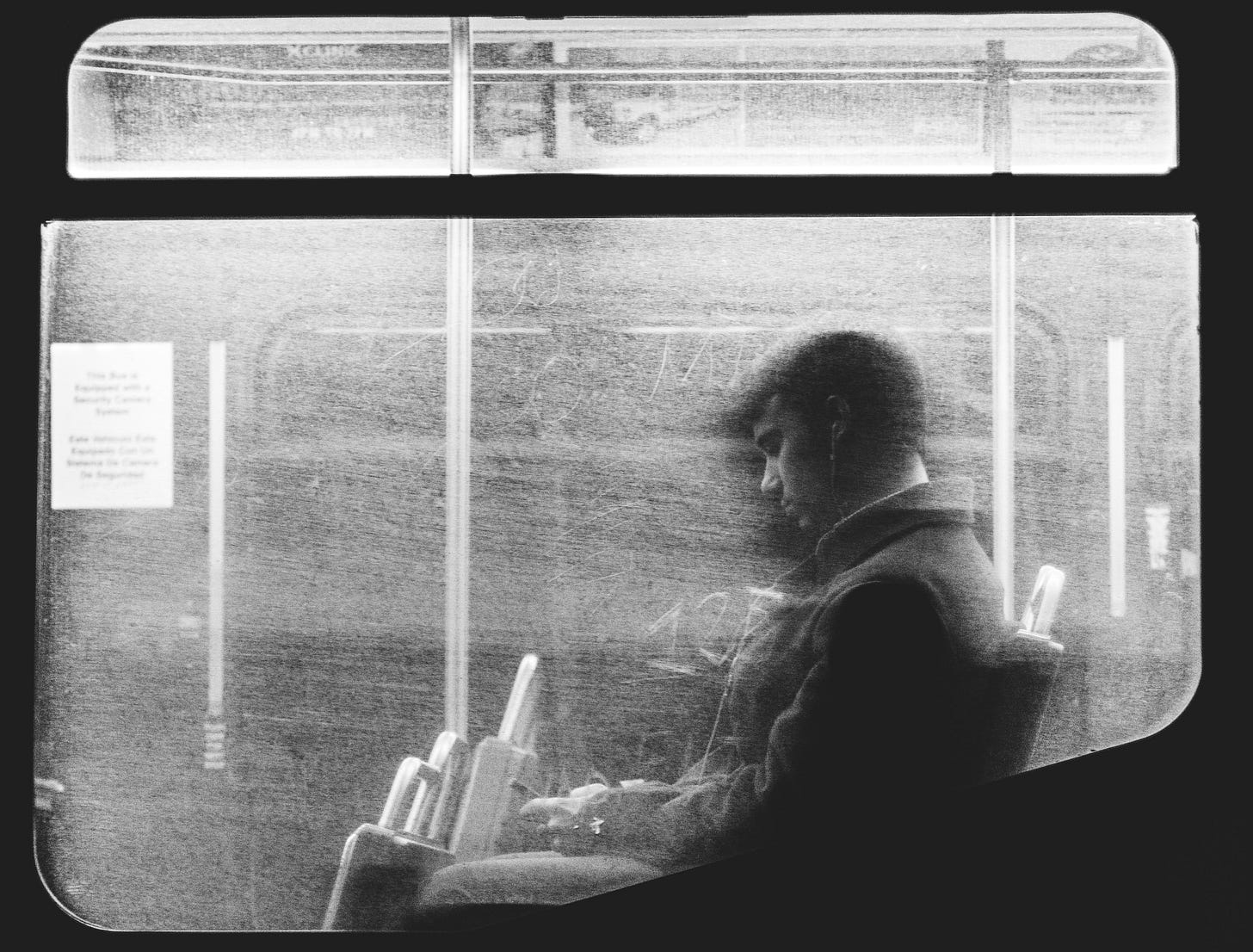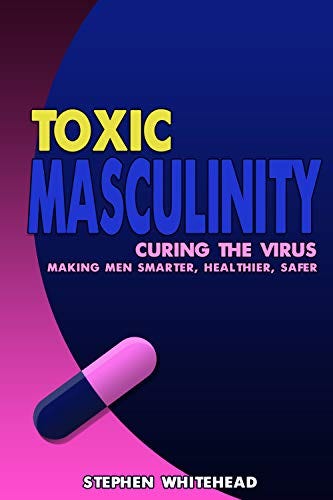In 2020, a 17-year-old fatally stabbed Ashley Noelle Arzaga, 24.
He stabbed two others at the scene. He later told police the attack was retribution for years of rejection by women and that he identified as a member of the Incel movement.
He was not charged with terrorism.
In 2018, a van in Toronto rammed into a crowd, killing 10 people and injuring 16 more. The driver also vowed to destroy women who rejected him. The driver had posted on Facebook moments beforehand:
‘All hail the Supreme Gentleman Elliot Rodger!' and that the 'Incel rebellion has begun'.
The word Incel is short for 'involuntary celibate'.
While there are many different definitions, Dr. Debbie Ging, Associate Professor in the School of Communications, DCU, defines incels as 'someone who wants to have sex, but isn’t successful at having sex.'
Dr. Stephen Whitehead, author of 'Toxic Masculinity: curing the virus, making men smarter, healthier, safer’, defines incels as someone who has a 'pathological hatred of women, who they blame for the loss of power and in particular, white male power.'
Chad’s and Staceys
The Incel community exists online in a place termed the 'manosphere', an area of the internet that comprises of blogs, subreddits, Youtube channels, websites and various social media.
They are easily recognisable due to their ideologies and use of language.
From Chad’s to Staceys, the vocabulary they use is distinct and ridden in misogyny. Sites like 4chan and Reddit helped create a sense of community for those who struggled with relationships issues and to find like-minded people. These groups back each other up, confirming that women are the problem, that violence is the answer and generally spread misogynistic ideologies around.
The extremist sides end up with people murdered.
In order to help prevent young people from turning towards this culture, we need to understand what attracts them to Incel culture.
Dr. Debbie Ging, a specialist in online hate, reckons it’s many factors. From isolation and lack of social skills to the loss of masculinity in society, there are numerous causes. In a neoliberal capitalist economy, everyone is expendable and times have changed.
‘You've got a lot of guys looking at their father's living and realising it’s completely different for me. I'll never own a property and I may never get anything resembling a decent job with decent career prospects.'
There is also the perceived damage that has been done by 20 years of post-feminism and a constant view that girls can have it all and can do anything.
Ging continues that:
‘Women are tackling the workforce, getting good jobs and Incels see it as if they’ve been brainwashed by this myth of inequality. That gender equality has been achieved and now the new thing is that women are more powerful.’
What can start as normalised misogyny in society can quickly speed up and turn into vicious and dangerous hate. From gender roles being enforced from a young age as well as toxic masculinity being the norm. It can be quite easy for someone to fall down a hole into dangerous ideologies.
There’s also the added aspect of newer technology:
'Technology has exposed the fallacies surrounding sexual, racial and ethnic stereotypes. We live in a rich and varied social soup, not in ‘comfortable’ human social compartments, with straight white men naturally positioned at the top of a social hierarchy and the rest located beneath them.’ [1]
Straight white cis-men find themselves no longer at the top of the food chain. While fearing this, they turn to the internet. Algorithms from hours spent on different platforms from Reddit to YouTube means that they’re being fed information to line up with their beliefs at all times.
The language of Incels from 'Chad' (derogatory name given to attractive men who are sexually successful with women.) to 'Becky' (an average women who incels often believe they are owed sex from) are also popular meme formats.
These low-key sexiest memes are normalised and laughed at.
Women being attacked online and getting comments and messages ranging from rape to death threats is not uncommon.
Dr Stephen Whitehead, sociologist and author, adds that a majority of this culture seems to be white working-class young men:
'They might not have university degrees and generally haven’t travelled and explored other cultures. They often have poor emotional intelligence and nearly always have been raised in a toxic masculine environment. They’re grown up thinking that the only point of view of the world that matters is their own and they are susceptible to fake news and right-wing propaganda as well as conspiracy theories.’
When someone grows up thinking that their view of the world is the only right view, it can leave them more susceptible to ideologies like right-wing propaganda and sexist ideals as that is what fits their worldview comfortably and maintains their status quo. Without learning critical thinking and different ways of thinking, it’s much easier to fall into traps that lean into toxic ideologies - like Incel.
Normalised Violence
Even just browsing popular Incel sites, it is clear that a lot of Incels may be dealing with personal issues, whether it is mental or physical. Without the tools and knowledge in order to manage their problems in a healthy way, it is easy to project their issues onto women and society.
Their low self-esteem is managed by redirecting their struggles onto women and giving them the blame. We also need to have a look at the misogyny that is rampant in the media we consume, hiring practices that discriminate against women and our general culture around blaming victims of sexual assault.[2]
We have also normalised violence, especially against women in the media.
So how do you deal with centuries of a capitalist, patriarchal society that has used the media to push forward their way of thinking rather than listening to those with less power-in this case- women?
It is not as simple as telling someone that ‘no’, women don’t owe you anything, especially when you’ve already been engrossed in propaganda and theories of why women and society are to blame for their lack of relationships. With algorithms and strangers online backing up theories of women wanting alpha males and telling you that you’re not attractive because of your height (known as a heightcel). It is very easy to be sucked into a downward spiral where you can genuinely believe that the root of your problems is down to women.
So, how do we prevent this?
When seatbelts in cars were first introduced, a lot of people refused to wear them. Studies show that education points towards prevention.
Education = Prevention
Education regarding the internet has become essential in school, but the internet grows and changes so quickly, it’s hard to keep up.
It has to start young.
'You've got to capture the attention and imagination of children, boys, and girls, especially boys of kindergarten age, and you start talking about diversity.'
If people learn from a young age about internet safety and how the internet and algorithms work, this can advise them to be more critical of what they see online.
By being surrounded by diversity and taught empathy and gender studies, including toxic masculinity from a young age, you can stop the problem before it becomes too large. Teaching about propaganda and conspiracy theories and how they work while in school could also help prevent people from falling into traps.
By acknowledging the normalised violence and sexism in society and media, we can then break down and address the history and the issues. As Dr. Whitehead puts it:
‘We've got to change the fundamental characters of society. We’ve got to change people’s practises. It is a mainstream societal issue.’
However, it is also noted that education would be difficult. Dr Ging observes that there is a ‘lack of specialist knowledge in this area.’ Sometimes, especially now, you’re too late and young men have grown up around certain ideas of masculinity. They have found friends who think alike or groups online who agree. They back up your thoughts that being a virgin is bad (it isn’t) and that you’re a virgin because of genetic deposition (probably not). For people who have already reached this stage, they’re not going to listen to a female professional, no matter how important and high up in the field they are.
Dr. Pablo Castillo Diaz notes that 'they need to be hearing it from other men who are from their community.' You need men they’ll listen to, men who encapsulate masculinity in order to get their respect for them to listen. Only then can you maybe open up the discussion in a way to get them to thoroughly think through the ideologies they already possess.
Due to the toxic masculinity that they have experienced growing up, you need to be careful. One wrong comment that seems like they’re being attacked and it is very easy for the conversation to be closed off.
No one wants to be attacked for their views and their beliefs.
For someone who may already be leaning into these ideologies, education and therapy need to be brought in before it’s too late. By the time it has turned to a pure hatred for women, it is feared that there isn’t much chance of coming back.
By opening discussion, both online and in real life, maybe there is hope. Research done by ADL, a fighting hate group, found that 77.2 percent of respondents who identified as Incel said they are not optimistic about their future. Similarly, 88.3 percent of respondents reported that they are unhappy. Most responses had a genuine dissatisfaction with life.
Having access to mental health facilities could help tackle this.
Clearly, the issue is complex. There are many factors to consider.
Education seems to be the answer but inputting a structured education system is not just difficult but also time consuming and expensive. We need to not just have open conversations but also call out the clearly problematic societal way of thinking. By allowing sexist behaviour to go unchecked, we are contributing to the issue at hand. By setting standards and fixing the misogynistic issues, we can slowly but surely bring light to this issue and hopefully start making changes.
Clodagh Talbot
Ms Clodagh Talbot is a recent New Media Studies graduate with a special interest in the study of toxic masculinity and incel culture. She is an Associate of Total Inclusivity (www.totalinclusivity.com).
For more on incel culture, misogyny, and the three dominant global masculinities, we recommend Dr Stephen’s Whitehead’s book ‘Toxic Masculinity: Curing The Virus’:
“A well-researched, fascinating book”
“This is an important book coming at an important time”
“This book could not be more timely or relevant”
“The writing is forthright and authoritative, nicely blending academic insight with considered social observation and personal anecdote.”
“A thoroughly good book.”
“I loved this book. It called me out, it reassured me, and it rekindled by curiosity”
AVAILABLE FOR KINDLE DOWNLOAD AND IN PAPERBACK
References
[1] Stephen M.Whitehead , Toxic Masculinity : Curing the Virus: Making Men Smarter, Healthier, Safer : Curing the Virus: Making Men Smarter, Healthier, Safer (United Kingdom: Andrews UK Ltd., 2019 ), p. 33.
[2] Diana Duong, Incel culture is not mental illness. It runs much deeper (2020)
healthing.ca/men/violent-incel-culture-is-not-mental-illness-it-run-much-deeper> [accessed 2 March 2021]








